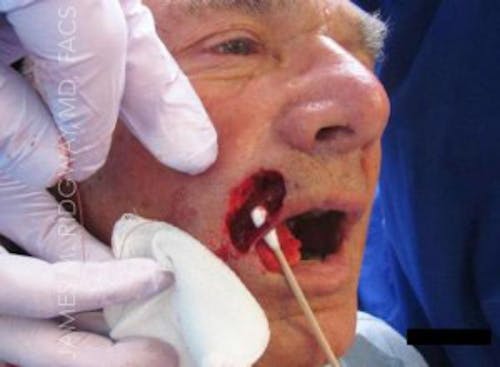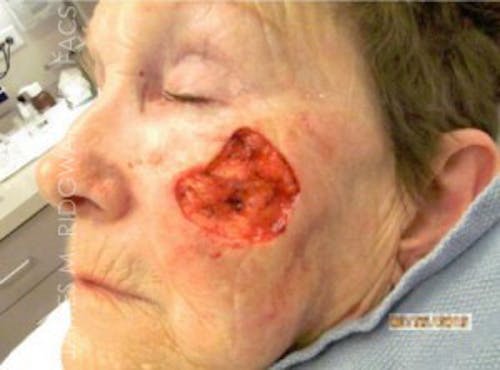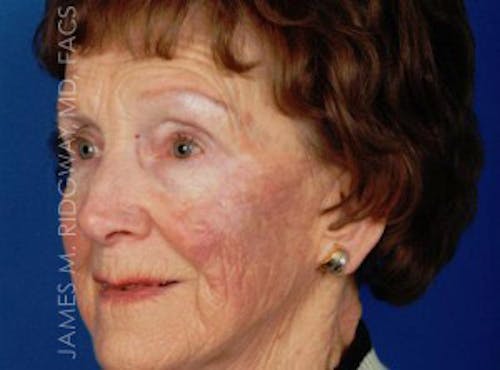An Overview of Mohs Surgery
With a cure rate of nearly 99 percent for most types of skin cancer, Mohs micrographic surgery is the gold standard approach for removing cancerous lesions. The procedure is most commonly performed by a dermatopathologist, a medical doctor who specializes in dermatology and pathology. During surgery, the physician will remove the cancerous layers of skin and tissue. He or she will then carefully analyze each excised layer using microscopic examination until your skin is entirely cancer-free. This allows the physician to remove all of the cancer while preserving as much healthy tissue as possible.
Once your cancer is removed, there will be a defect where the procedure was performed. If this defect is small, it can be closed with terrific results by your dermatopathologist. However, if the defect is more extensive or involves sensitive areas, you may be referred to Dr. Ridgway for his reconstructive expertise.



















